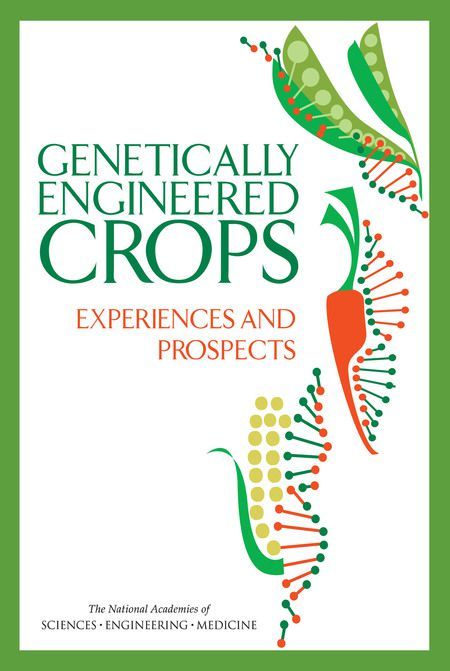Genetically Engineered Crops: Experiences and Prospects
U.S. National Academies Report Looks at 30 Years of GE Crops
U.S. national academies find biotech crops not harmful to human health and the environment. They conclude that foods from GE crops are as safe as foods from non-GE crops and and that the U.S. regulatory system needs to assess crop varieties based on their individual characteristics, not the way they are produced.

The National Academies has published a wide-ranging assessment of genetically engineered crops. The report looks at the impacts GE crops have had since the 1980s. Its findings include:
-Generally positive economic outcomes for farmers, but no indication GE crops changed the rate of increase in yields;
- Decreased crop losses, insecticide use and greater insect biodiversity for insect-resistant Bt crops, but also instances of insects evolving resistance;
- No decrease in plant biodiversity for herbicide tolerant crops, but a major problem with herbicide-resistant weeds due to heavy glyphosate use;
- No evidence that foods from GE crops are less safe to eat than conventional food.
Looking to the future of GE crops, the report notes that new genetic technologies are blurring the line between conventional and GE crops, and that the U.S. regulatory system needs to assess crop varieties based on their individual characteristics, not the way they are produced.


